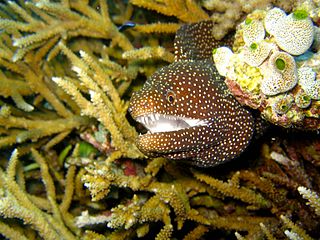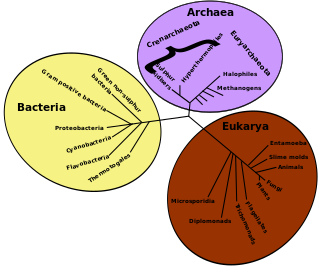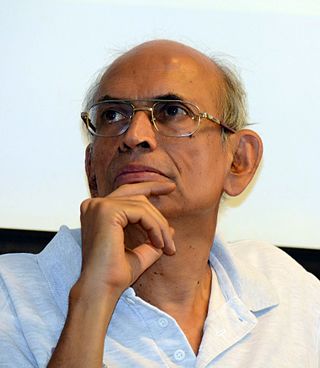
Ecology is the study of the relationships between living organisms, including humans, and their physical environment. Ecology considers organisms at the individual, population, community, ecosystem, and biosphere level. Ecology overlaps with the closely related sciences of biogeography, evolutionary biology, genetics, ethology, and natural history. Ecology is a branch of biology, and it is not synonymous with environmentalism.

Political ecology is the study of the relationships between political, economic and social factors with environmental issues and changes. Political ecology differs from apolitical ecological studies by politicizing environmental issues and phenomena.

Human ecology is an interdisciplinary and transdisciplinary study of the relationship between humans and their natural, social, and built environments. The philosophy and study of human ecology has a diffuse history with advancements in ecology, geography, sociology, psychology, anthropology, zoology, epidemiology, public health, and home economics, among others.
Industrial ecology (IE) is the study of material and energy flows through industrial systems. The global industrial economy can be modelled as a network of industrial processes that extract resources from the Earth and transform those resources into products and services which can be bought and sold to meet the needs of humanity. Industrial ecology seeks to quantify the material flows and document the industrial processes that make modern society function. Industrial ecologists are often concerned with the impacts that industrial activities have on the environment, with use of the planet's supply of natural resources, and with problems of waste disposal. Industrial ecology is a young but growing multidisciplinary field of research which combines aspects of engineering, economics, sociology, toxicology and the natural sciences.
Cultural ecology is the study of human adaptations to social and physical environments. Human adaptation refers to both biological and cultural processes that enable a population to survive and reproduce within a given or changing environment. This may be carried out diachronically, or synchronically. The central argument is that the natural environment, in small scale or subsistence societies dependent in part upon it, is a major contributor to social organization and other human institutions. In the academic realm, when combined with study of political economy, the study of economies as polities, it becomes political ecology, another academic subfield. It also helps interrogate historical events like the Easter Island Syndrome.

Moray eels, or Muraenidae, are a family of eels whose members are found worldwide. There are approximately 200 species in 15 genera which are almost exclusively marine, but several species are regularly seen in brackish water, and a few are found in fresh water.

Evolutionary ecology lies at the intersection of ecology and evolutionary biology. It approaches the study of ecology in a way that explicitly considers the evolutionary histories of species and the interactions between them. Conversely, it can be seen as an approach to the study of evolution that incorporates an understanding of the interactions between the species under consideration. The main subfields of evolutionary ecology are life history evolution, sociobiology, the evolution of interspecific interactions and the evolution of biodiversity and of ecological communities.

Environmental resource management is the management of the interaction and impact of human societies on the environment. It is not, as the phrase might suggest, the management of the environment itself. Environmental resources management aims to ensure that ecosystem services are protected and maintained for future human generations, and also maintain ecosystem integrity through considering ethical, economic, and scientific (ecological) variables. Environmental resource management tries to identify factors affected by conflicts that rise between meeting needs and protecting resources. It is thus linked to environmental protection, sustainability, integrated landscape management, natural resource management, fisheries management, forest management, and wildlife management, and others.
Ecological anthropology is a sub-field of anthropology and is defined as the "study of cultural adaptations to environments". The sub-field is also defined as, "the study of relationships between a population of humans and their biophysical environment". The focus of its research concerns "how cultural beliefs and practices helped human populations adapt to their environments, and how people used elements of their culture to maintain their ecosystems". Ecological anthropology developed from the approach of cultural ecology, and it provided a conceptual framework more suitable for scientific inquiry than the cultural ecology approach. Research pursued under this approach aims to study a wide range of human responses to environmental problems.
Acoustic ecology, sometimes called ecoacoustics or soundscape studies, is a discipline studying the relationship, mediated through sound, between human beings and their environment. Acoustic ecology studies started in the late 1960s with R. Murray Schafer a musician, composer and former professor of communication studies at Simon Fraser University and had the help of his team at Simon Fraser University as part of the World Soundscape Project. The original WSP team included Barry Truax and Hildegard Westerkamp, Bruce Davies and Peter Huse, among others. The first study produced by the WSP was titled The Vancouver Soundscape. The interest in this area grew enormously after this pioneer and innovative study and the area of acoustic ecology raised the interest of researchers and artists all over the world. In 1993, the members of the by now large and active international acoustic ecology community formed the World Forum for Acoustic Ecology.
Ecocriticism is the study of literature and ecology from an interdisciplinary point of view, where literature scholars analyze texts that illustrate environmental concerns and examine the various ways literature treats the subject of nature. It was first originated by Joseph Meeker as an idea called “literary ecology” in his The Comedy of Survival: Studies in Literary Ecology (1972). The term 'ecocriticism' was coined in 1978 by William Rueckert in his essay "Literature and Ecology: An Experiment in Ecocriticism".

The environmental humanities is an interdisciplinary area of research, drawing on the many environmental sub-disciplines that have emerged in the humanities over the past several decades, in particular environmental literature, environmental philosophy, environmental history, science and technology studies, environmental anthropology, and environmental communication. Environmental humanities employs humanistic questions about meaning, culture, values, ethics, and responsibilities to address pressing environmental problems. The environmental humanities aim to help bridge traditional divides between the sciences and the humanities, as well as between Western, Eastern, and Indigenous ways of relating to the natural world and the place of humans within it. The field also resists the traditional divide between "nature" and "culture," showing how many "environmental" issues have always been entangled in human questions of justice, labor, and politics. Environmental humanities is also a way of synthesizing methods from different fields to create new ways of thinking through environmental problems.

Environmental philosophy is a branch of philosophy that is concerned with the natural environment and humans' place within it. It asks crucial questions about human environmental relations such as "What do we mean when we talk about nature?" "What is the value of the natural, that is non-human environment to us, or in itself?" "How should we respond to environmental challenges such as environmental degradation, pollution and climate change?" "How can we best understand the relationship between the natural world and human technology and development?" and "What is our place in the natural world?" Environmental philosophy includes environmental ethics, environmental aesthetics, ecofeminism, environmental hermeneutics, and environmental theology. Some of the main areas of interest for environmental philosophers are:

The Cape Town Ecology Group was a South Africa-based radical environmental group, founded in 1987, as a "child of Koeberg Alert", and active until the early 1990s. It espoused a more political-oriented green ideology as opposed to the apartheid-based conservation groups of the time. According to founder Mike Cope: "We felt the need to view ecological issues on a broader level and recognised the connection between politics and ecology. Ecology is definitely a political issue because environmental issues are about where we live."

Madhav Dhananjaya Gadgil is an Indian ecologist, academic, writer, columnist and the founder of the Centre for Ecological Sciences, a research forum under the aegis of the Indian Institute of Science. He is a former member of the Scientific Advisory Council to the Prime Minister of India and the Head of the Western Ghats Ecology Expert Panel (WGEEP) of 2010, popularly known as the Gadgil Commission. He is a recipient of the Volvo Environment Prize and the Tyler Prize for Environmental Achievement. The Government of India awarded him the fourth highest civilian award of the Padma Shri in 1981 and followed it up with the third highest award of the Padma Bhushan in 2006.
Feminist political ecology is a feminist perspective on political ecology, drawing on theories from Marxism, post-structuralism, feminist geography, ecofeminism and cultural ecology. Feminist political ecology examines the place of intersectional social relations in the political ecological landscape, exploring them as a factor in ecological and political relations. Specific areas in which feminist political ecology is focused are development, landscape, resource use, agrarian reconstruction and rural-urban transformation. Feminist political ecologists suggest gender is a crucial variable – in relation to class, race and other relevant dimensions of political ecological life – in constituting access to, control over, and knowledge of natural resources.
Religion and environmentalism is an emerging interdisciplinary subfield in the academic disciplines of religious studies, religious ethics, the sociology of religion, and theology amongst others, with environmentalism and ecological principles as a primary focus.
Environmental anthropology is a sub-discipline of anthropology that examines the complex relationships between humans and the environments which they inhabit. This takes many shapes and forms, whether it be examining the hunting/gathering patterns of humans tens of thousands of years ago, archaeological investigations of early agriculturalists and their impact on deforestation or soil erosion, or how modern human societies are adapting to climate change and other anthropogenic environmental issues. This sub-field of anthropology developed in the 1960s from cultural ecology as anthropologists borrowed methods and terminology from growing developments in ecology and applied then to understand human cultures.
In biology and ecology, a resource is a substance or object in the environment required by an organism for normal growth, maintenance, and reproduction. Resources can be consumed by one organism and, as a result, become unavailable to another organism. For plants key resources are light, nutrients, water, and place to grow. For animals key resources are food, water, and territory.
Madhur Anand is a Canadian poet and professor of ecology and environmental sciences. She was born in Thunder Bay, Ontario and lives in Guelph, Ontario.










